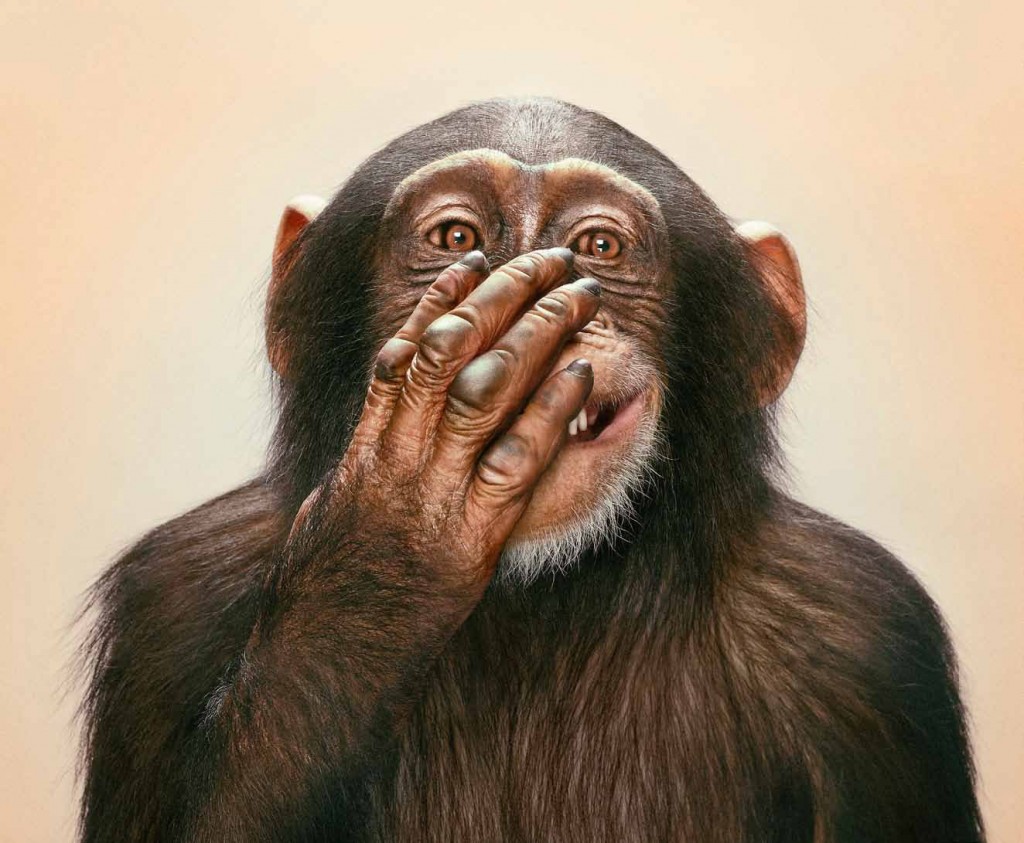
A chimpanzee walks into a bar carrying a sponge—just the thing for soaking up his beverage of choice, grape juice. But the guy next to him offers to trade the sponge for a dipstick—which could come in handy to extract maple-flavored oatmeal from a tight space.
Does the chimp trade, or stick with his sponge?
It turns out that chimpanzees behave much like humans in displaying the controversial trait known as the “endowment effect,” which has implications for law. The endowment effect causes people to consider an item they have just come to possess as higher in value than the price they would have paid just a moment before. Some consider the endowment effect a human-centered fluke, subject to widespread, unpredictable variation.
Vanderbilt researcher Owen Jones, one of the nation’s few professors of both law and biology, and evolutionary biologist Sarah Brosnan of Georgia State University tested when and how the endowment effect would appear in chimpanzees. Drawing on prior work by Jones, they found consistency between chimpanzees and humans with respect to the endowment effect and showed that variations in prevalence could be predicted.
“These results strongly support the idea that the endowment effect reflects the deep influence of evolutionary processes—notably natural selection—on psychological predispositions that affect how brains ascribe value to objects,” says Jones, the New York Alumni Chancellor’s Professor of Law, professor of biological sciences, and director of the MacArthur Foundation Research Network on Law and Neuroscience.
In humans, the endowment effect can be demonstrated in experiments when preferences between two equally available objects are compared separately to the choices people make when they own one of the objects and have the opportunity to trade it for the other. Typically, far fewer trades take place than economists would expect, given the preferences expressed under the choice condition.
In a prior study Jones, Brosnan and colleagues found that chimpanzees were far more likely to keep a less preferred food when they could trade it for a more preferred food than they were to keep a less preferred toy when they could trade it for a more preferred toy. In the present study Jones, Brosnan and colleagues predicted that chimpanzee behavior would change for the same nonfood item—in this case a tool—depending on whether that tool could be used to immediately obtain food.
The results were striking. As soon as chimpanzees could access a food, many began keeping whichever tool they were endowed with, regardless of whether they could exchange it for their more preferred tool. But when food was either absent or present and unobtainable, there was no endowment effect and chimpanzees traded tools freely.
“This could expose previously hidden patterns in the human decision-making architecture—not only with respect to the endowment effect, but also with respect to the entire suite of human biases,” says Jones. “And that, in turn, could help the legal system to predict, anticipate and respond to human behaviors that pose problems for law.”